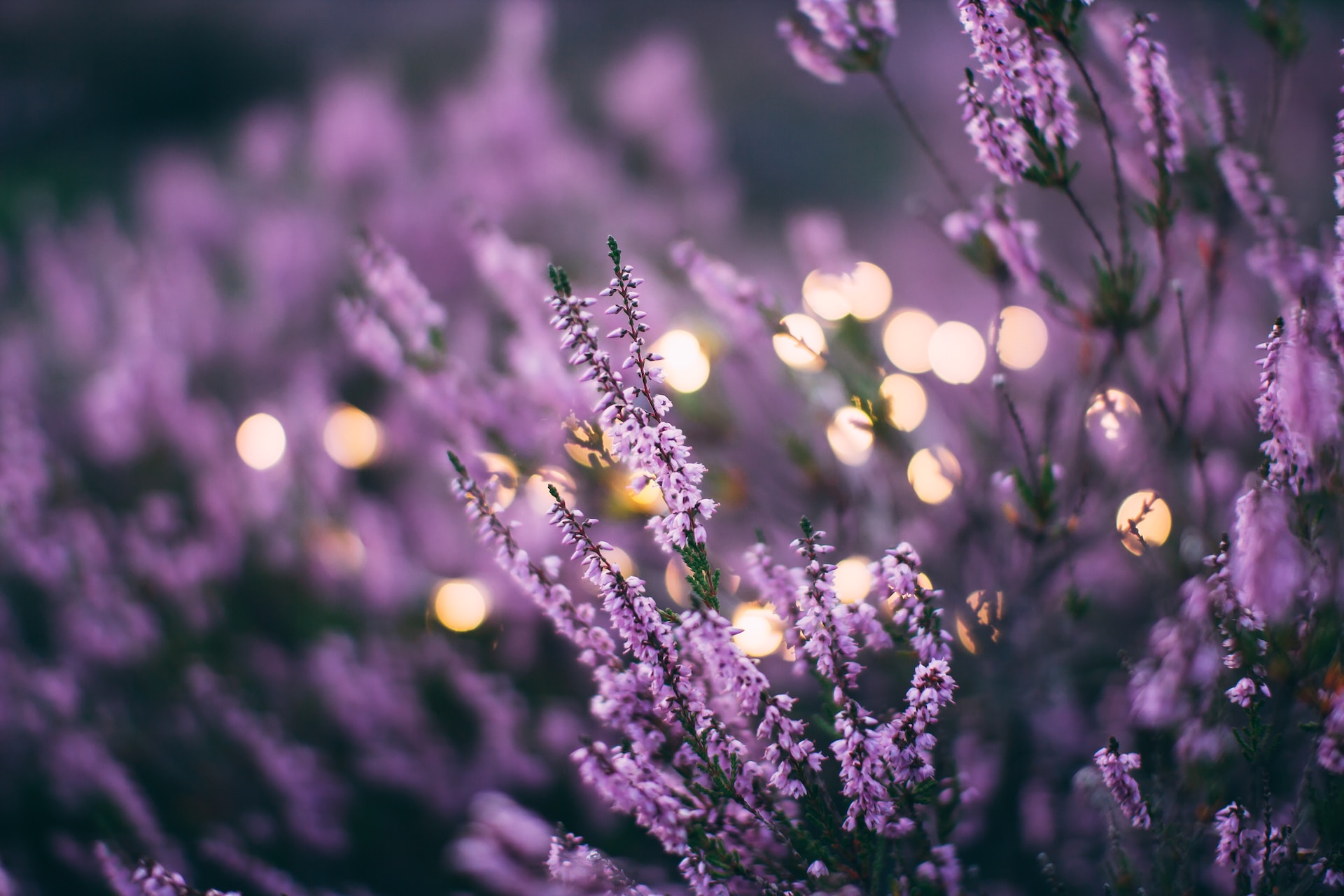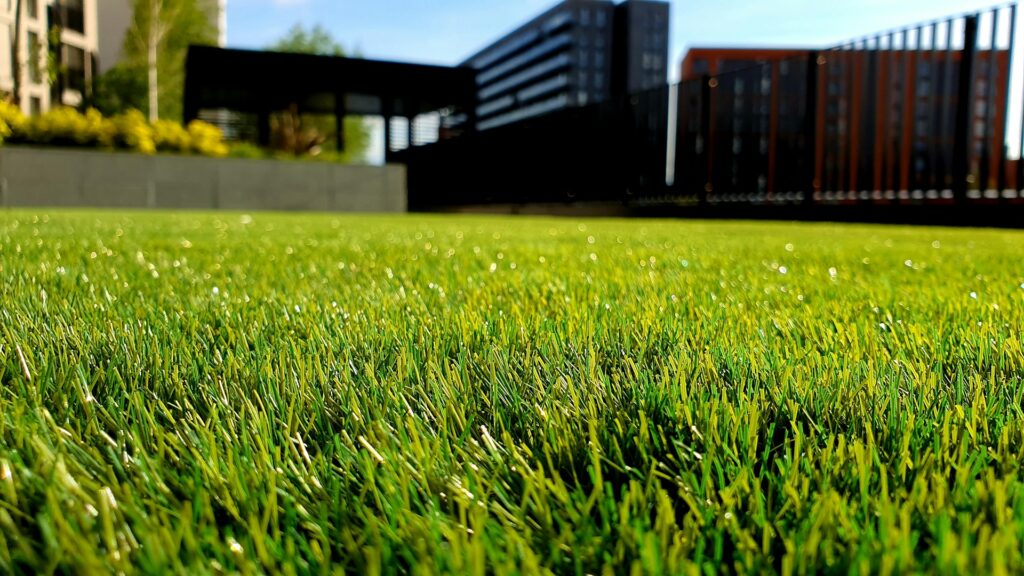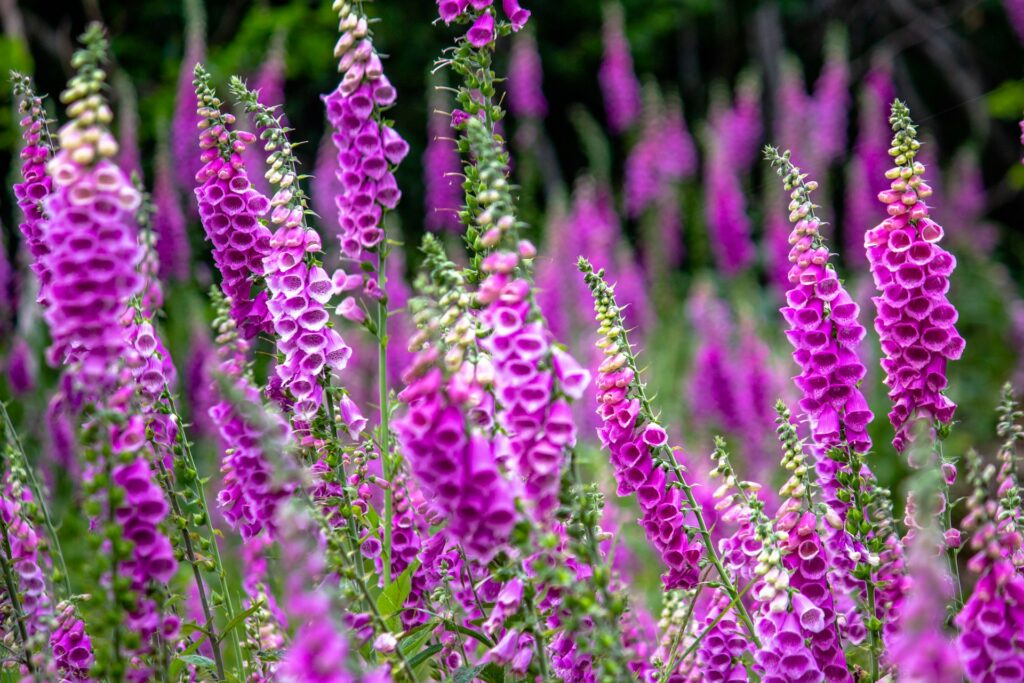
We are reader-supported. When you buy through links on our site, we may earn an affiliate commission.
Warm weather means spending time in nature, but you’re not the only one occupying your patio’s airspace. Tiny flying pests await, ready to drain your blood and possibly give you a nasty disease. Can the right mosquito-repellent plants keep your home and garden free of this scourge so you can enjoy your outdoor living space without bathing in calamine lotion afterward?
The answer is yes. Adding the following 11 mosquito-repellent plants to your abode can deter them from your airspace and decrease the chances they’ll make you their next snack. Some double as makeshift bug spray in a pinch when you crush them to release the essential oils. Here’s what to plant to turn your home and garden into a mosquito no-fly zone.
1. Citronella Grass
You undoubtedly recognize this name from the many mosquito-repellent candles lining your store shelves. Citronella grass is widely known for its ability to deter flying pests. This ornamental grows up to six feet, making it a wise choice for filling empty spots between other plants.
This plant can’t survive temperatures below 32° Fahrenheit. For best results, sow it indoors toward winter’s end so it’s ready to plant when spring arrives. When the first mosquitos start flying, they’ll know to leave your yard alone.
2. Bee Balm
You want to invite some flying critters to your garden. Bee balm offers the benefit of being irresistible to pollinators while also acting as a mosquito-repellent plant. It’s friendly to butterflies, too.
Modern herbalists know this plant as a digestive aid, and it also eases muscle cramps. Many women have success using it to alleviate menstrual discomfort.
3. Allium
You might mistake the big, globular blooms of allium for bath poufs. Some species of this plant are edible, including onions, garlic, shallots, leeks and chives, while others are strictly ornamental.
You can make these plants do double duty. Establish edible varieties in your vegetable garden to stay bite-free while harvesting your crops and decorative ones around the patio.
4. Lavender
Lavender is something that everyone should have in their garden. It’s a fabulous mosquito-repellent plant, but that’s not the only property that makes it magical.
Lavender has a longstanding reputation among herbalists for easing stress and anxiety. You can use it in dozens of ways. Cut a bundle of stems for your dining room table — who knows, it may cool tempers if political talk turns heated.
You can make a simple lavender essential oil by adding crushed dried blooms to a carrier oil like olive, hemp seed or avocado. Dab a bit on your pulse points to inhale relaxation all day. Some migraine sufferers report relief from rubbing the essential oil on their temples. You can also distill it in alcohol, add it to a spray bottle and spritz it on your pillow to help you sleep at night.
5. Marigold
Marigolds also belong in every gardener’s beds. They aren’t only a fabulous mosquito-repellent plant. Place some in your vegetable garden, where they’ll eliminate cabbage worms and other nematodes that destroy crops.
Marigolds also have antimicrobial and anti-inflammatory properties. Did you cut yourself while weeding and hoeing? Break off a bit of marigold and apply the juice from the stem to the cut to disinfect it.
6. Mint
Nearly all species of mint, from basil to spearmint, act as mosquito-repellent plants. They’re also handy in the garden, as they add fabulous flavor to recipes and drinks. Consider the following uses for your mint stash:
- Spearmint: Chew on a leaf to freshen your breath or make a magical mojito with this garnish.
- Basil: Hello, can you say “pesto?” This herb also adds flavor to tomato-based sauces.
- Peppermint: Good for some tummy aches — try making the leaves into tea or chewing on a raw one. You can also make a cooling body mist by distilling the leaves in alcohol.
7. Eucalyptus
Eucalyptus plays a starring role in many floral arrangements for its light, clean fragrance. Planting a stash in your garden provides an endless supply that you can bring into your house to freshen the air without VOCs.
This plant belongs on this list for its mosquito-repellent properties. Additionally, eucalyptus essential oil comes in handy if you have a cold or the flu. Use alcohol to distill it and add a few drops to your aromatherapy diffuser. The steam loosens up your phlegm, making clearing the lung gunk easier.
8. Lemongrass
If you love Asian cuisine, you should plant lemongrass in your garden. This plant plays a role in many curry dishes and is a staple in Thai kitchens.
This plant also has reported health benefits. It’s high in quercetin, a flavonoid you might recognize as a supplement on many health food store shelves. The substance may help prevent age-related diseases such as heart disease and cancer.
9. Catnip
Catnip is a fabulous mosquito-repellent plant that might draw something else to your garden. Your neighborhood strays often find it intoxicating. Only you can decide if the minor damage these felines do compensates for them keeping mice and other rodents from destroying your garden.
Catnip is one of the easiest herbs to grow from cuttings. If you have a friend with a bunch, you can propagate it for free by adding the soft stems to water and waiting for them to grow roots.
10. Fennel
Fennel has a distinctive taste that many people either love or hate. Mosquitoes decidedly do not like it, making it a good choice for your garden.
Fennel is also edible, making it a welcome addition to your vegetable garden. You can shave, roast, or pickle it for use in recipes and salads.
11. Ageratum
If you like non-stop color from spring to fall, ageratum is the mosquito-repellent plant you need in your garden. This plant’s name means longevity, and the white, lavender or true blue blooms stay in flower from March through October in some regions.
It’s a perfect addition to a moon garden. Intersperse it among white blooms or shrubs like datura to create an enchanted evening pathway.
Mosquito-Repellent Plants
Being outside is great. Being eaten to death by bugs? Not so much. You need the right mosquito-repellent plants to keep your home and garden pest-free.
Line your beds with the 11 mosquito-repellent plants listed above. You’ll enjoy your outdoor living space more when being there doesn’t leave you itchy.










